- Home
- neetha Napew
Jinian Stareye Page 3
Jinian Stareye Read online
Page 3
We sat upon the moor for several days, which was probably not really more than an hour or two. We saw the gift of the blue crystals from Shadowperson to Queynt. Queynt had said they were small; he had showed them to us, and they were quite small, no larger around than the nail of my little finger. Lorn remembered them as large, glowing, a sapphire radiance that the Shadowman could barely hold in his two cupped hands.
‘You were right, Jinian,’ Peter told me, awe-stricken. ‘The world considered those blue crystals to be important. Terribly important.’
We followed Queynt and the Shadowman as they went north to meet the Eesties.
We saw the Eesties.
And Peter had to hold me to keep me from running.
Ever since my recent captivity in the cavern of the giants, I’d had this horror of the Oracle - Oracles, one or many. Every time I thought of the creature or his minions, my mouth went dry and the Dagger of Daggerhawk burned on my thigh as though it were made of hot coals. I thought of trickery and evil. I thought of pain and malice. Long ago in Chimmerdong I’d taken food from the creature’s hands, and it had pretended a mocking friendship while it toyed with me. More recently it had plotted my death. In Chimmerdong it had put a dreadful weapon in my hands; in the cavern of the giants, it had set that weapon outside my reach. In short, it had played with me, trifled with me, amused itself with me, and I hated it.
So now, deep in the remembered dark of the Shadow-marches, two Eesties came out of the shade to stand before Vitior Vulpas Queynt, and I shuddered at the sight. They wore ribbons and precursive suggestions of that fanciful cloak the Oracle had worn, and they, too, had faces painted upon their upper ends. They were as like the Oracle as one thrilp is like another, each unique, perhaps, but still instantly recognizable as what it was.
They didn’t see me fall apart in incipient hysterics. Peter did, catching me as I was about to flee, holding me while the shivering stopped. ‘Sorry,’ I mumbled. ‘They - they look like the Oracle.’
‘They can’t both be the Oracle,’ he said in a reasonable voice. ‘And unless they live forever - which I suppose is remotely possible - then it’s likely neither of them is.’
‘You - you don’t understand,’ I stammered irrationally. ‘I don’t think it matters which individual was the Oracle. I think they all are, so to speak. All. Each. Like a hive of warnets. If one knows me, then all of them do.’
‘Perfectly possible,’ he said calmly, ‘but not then.’
Which was true. They might all know me now, whenever now was, but they had not known me then, a thousand years ago, when Queynt had walked upon the marches. For whieh, in that moment, I was extremely thankful.
Queynt, on the other hand, had nothing to be thankful for. He had not told us they had trussed him up, which they had. And he had not told us what they had said to one another in their own language, because he hadn’t known. I, on the other hand, looking on, could understand every word, both when they talked to him and when they talked to one another. Which meant Lorn had understood it, too.
They began by accusing him of being of a filthy race that carried destruction with it. Queynt apologized for this but said many humans were trying to rise above their destructive natures. The Eesties twitted him then, comparing him to the Shadowpeople, whom they seemed to hold in contempt. Shadowpeople, who were no more than beasts, no more than animals, who aspired to ‘elevation,’ who were ‘above themselves.’
They wanted him to leave the world and take all mankind with him. So much was obvious. Through it all, Queynt was calm, fairly reasonable, polite, He kept trying to understand them. He didn’t hear what they said to one another, however.
‘How could Lom claim to find bao in this filth?’
‘How could we be so little thought of that these would be set beside us?’
‘This stinking thing.’
‘This animal.’
‘No better than a pombi.’
‘No more bao than a thrilpat.’
‘We should loose the shadow on them.
The meaning conveyed by bao wouldn’t translate for me. It meant something like allness or wholeness or completion, used as a noun. Bao was both a thing and a quality. Something Lom had. Something they, the Eesties, had and we, humans, did not. Presumably. At least so they shouted as they tore at Queynt with insulting words.
Back among the trees there was a great, curved shell, bright red, like the egg of some monstrous bird. Every now and then the Eesties would look nervously in that direction, as though something slept inside it. After a time, another one came out of the trees, larger than the first two, and then the three of them began to touch Queynt, fumble at him, look through his pouch and pack.
When they found the blue crystals in his pouch, they went mad. For a moment I forgot they had not killed him in reality, they seemed so likely to do so here in memory. I started looking for a rock, reaching for the Dagger, anything at all to protect Queynt from their wrath.
‘How could he have this? We had them all!’ they screamed.
‘How did it come by this? They were stored in the monsters’ cavern.’ A wrathful bellow.
‘Traitors! One of the Brotherhood [Fraternity? Society? Conspiracy?] has betrayed. ...”
All the time they were striking him, working themselves up into a fury. Though I knew they had not killed him, still I began to worry that history might be playing itself wrongly. I reached for the Dagger.
Then the cry came, enormous and aching. I understood it clearly. ‘Halt. Stop. Hold it right there.’
The Eesties froze. Queynt was rolled into a ball on the ground, still tied, hands covering his neck. The cry came again. One of the three said, ‘Ganver,’ in a strangled voice. They left Queynt, rolled away from him like naughty boys caught at mischief, running away, afraid to own what they had done, what they had almost done.
And another Eesty came from the direction of the great egg. Much larger, this one, and with no paint or ribbons. Merely a great, star-shaped thing with a suggestion of face at its center. No expression. I could not tell whether it was sad or angry. It leaned toward Queynt, moved about him, untied him. It cried again, a great, accusing cry with all the woes of the world laden in it, turned and looked directly into my eyes, itself eyeless, then rolled away toward the scarlet egg again.
And Queynt, patted into consciousness by several of the Shadowpeople who had come from the trees, was on his feet, brushing himself off, looking pale and bruised but somehow indomitable.
‘It saw me,’ I said to Peter. ‘That last Eesty, the one that yelled. It saw me.’
‘Jinian!’ He was sympathetic, pat-patting my shoulder, thinking I was losing my control once more.
‘Really, Peter. Honestly. It saw me! Let’s follow it.’ This was unlike me, but I was having a very strong hunch.
‘If we lose Queynt, we may not be able to find our way back to Betand, and from there to the desert, and from there-‘
‘We’ll be able to find Betand. And if we didn’t, all we’d have to do is come back here and Queynt would show up here eventually. Again.’ I wasn’t sure of this at all. This particular ‘event’ didn’t feel like the others. It wasn’t nearly as discrete and repetitive. None of which mattered at the moment. ‘Please, Peter. Let’s follow it.’
‘Ganver,’ he said. ‘Mavin told me about Ganver. Or wrote about it, rather. She could never talk about it.’
‘I know. She showed me what she’d written. It was Ganver’s bone that stopped the Ghoul plague in Pfarb Durim. And Mavin found him in a scarlet egg, so she said. Peter, we have to try.’
‘I thought you didn’t like Eesties!’
‘I don’t like the Oracle kind. The maskers. The dressed-up ones, all full of false flourishes. One of them called themselves a - a. . .’ I tried to find a human word for it. All I could come up with was ‘Brotherhood,’ which wasn’t very close to the actual meaning. ‘They called themselves a “Brotherhood,” Peter. But Ganver isn’t part of that. Couldn’t you feel i
t?’
‘No,’ he said as he always did to such questions about what he could feel or not feel. ‘I’ll take your word for it.’
Guiding ourselves by that flash of brilliant color, we set off through the trees. When we came to the curving wall, both of us stood there, mouths open. It was huge. Bright. Scarlet as blood. Smooth as stone. Crystalline. Very much like the monuments outside Pfarb Durim, so Mavin had written. We circled it, warily, finding no opening at all.
‘Damn,’ I whined. ‘We can’t get in!’
‘I don’t know why not,’ said Peter, leaning himself against the egg and pushing. ‘It’s only a memory.’ He went on pushing, whistling between his teeth. I stared at him for a moment, then leaned beside him, pushing along with him. At first it was hard, stony. Gradually it changed. It felt like pushing the side of a monstrous d’bor. Rubbery. Not immovable, not impenetrable, merely very, very resistant. When we were half-buried in the wall, I began to fear we might end up smothered inside it. Peter went on whistling. Then we fell through. ‘See,’ he said in a cheerful voice as he picked himself up. ‘It yields to persistence.’
I had a feeling I would learn to hate that phrase.
The inside of the egg was as Mavin had described it.
Many star-shaped maintainers bustling about, polishing pedestals, faceting gravel in the walk, doing other things that I found mysterious and totally unfamiliar. The whirling flowers were there; the grass that cried; the gravel that repeated, ‘What, what,’ just as Mavin had said. Even the tall pedestals were there at the end of the walk, but the first one, on which Ganver should have rested in an enigmatic red globe, was empty.
We were not totally surprised when the voice addressed us from behind. ‘You followed me,’ it said accusingly. We turned, stepping back involuntarily. This Eesty was very large, larger than it had seemed when assisting Queynt. It was also very troubled. The trouble was in the tone of its voice, in the way it stood before us, almost trembling. The vague facelike structure at its center showed nothing. Its voice did not come from there. It came from the creature itself, needing no lung, no mouth, no tongue.
‘Yes,’ I replied, keeping it simple. ‘We followed you. We need you.’
‘How could you come here, into our dreams, our memories? Into our timeless place from which all times are spun? Is there no place you cannot come, you intruders, vandals, you who usurped our children’s heritage? Oh, humans, go away from here.’
I would have sworn it was crying, such a tragic weeping it put me off and I could not answer.
I heard the misery, but Peter didn’t. ‘We can’t,’ he said. ‘My mother came to you. You helped her. Now I have come to you and you must help me. You must help me help the world you live in.’
‘Why must I?’ it cried. ‘We have put that all away. We have let it go. Let come what will come!’
For some reason this made me furiously angry. ‘Oh, very nice,’ I snarled. ‘Cause this great tragedy, this death of a world, the world which bore you and nurtured you, and then simply turn your back. Go off into some dream dimension of your own. Selfish. Horrid. You’re responsible for this, Ganver. Your people did it. Your people, those Oracles, those berib-boned mischief makers. They’re killing Lom. They are the ones who are killing Lom’s bao!’ I still didn’t know what the word meant, but it was the right word to use. Before us the Eesty stiffened, became rigid, began to shake, shook for a time that seemed endless before crying out a sound.
Around us the world trembled. The great egg quivered. I felt it roll. The sky cracked, broke, and blue distance showed through rents in the scarlet shell. Black lightning struck from the blue sky. A feeling like hard smoke went through me. A sound that tasted of rotten flesh startled the air, and my skin felt sour, acid.
We were standing in the forest. The egg was gone, all its parts and contents gone, there was only the giant Eesty there, still as the light of a distant lamp, cold and far.
‘You have accused me of complicity,’ it said in a chill, tiny voice, a threat and a wounded pride so deep and massive it made me tremble, and I felt Peter’s hand shake a little in mine. That he had felt.
Never mind. We had to go on. We had come too far not to.
‘We have accused you of betraying this world,’ I said, struggling to keep the tremor out of my voice, ‘Of killing your parent.’
Silence. Silence full of danger. In my hand, Peter’s fingers changed, became covered with horn. He was preparing to Shift, to defend himself and me if need be. The moment stretched into an endless, breathless age.
‘You need not think of weapons,’ it said at last, contemptuously. ‘Ganver does not retaliate against infants, against children, against silly-beings.’ It was thinking of small chattering birds, of tree rats in their nests. All of that was implicit in its voice.
‘Silly-beings may have more good sense in their simplicity than great minds in their pride.’ I don’t know where the words came from. Out of something Murzy had said, I think. Or perhaps one of Cat Candleshy’s scholarly epigrams. Whatever their source, these words were the key. The word ‘pride’ was the key.
‘You have accused. Among our people, we treat accusation seriously. We are accused seldom. Never by . . . others,’ It meant inferiors. I was depressed. Mavin’s account of her meeting with Ganver had led me to expect something more understanding and godlike than this. It went on, ‘If you accuse, then you must judge.’
‘You let your accusers be your judges?’ asked Peter, astounded.
‘Who else should be satisfied?’ it asked. ‘If one’s accusers cannot be satisfied, what is justice?’
‘One’s accuser might be mad,’ Peter suggested, very unwisely I thought, considering where we were. ‘Mad, and incapable of being satisfied.’
This stopped it, but only for a moment. ‘We would deal otherwise with defective creatures,’ it said very softly. ‘Are you defective?’
‘I believe we are not,’ said Peter. ‘As a matter of fact, we may be far less defective than many.’
‘Of your kind,’ it said. There was no sneer in its voice, but the words carried enough to shut Peter up.
‘How must we judge?’ I asked, eager to change the subject.
‘You must see, experience, be one with the events which occurred. You must know. Feel. Only then can you judge.’
‘And how do we do that?’
‘Thuswise,’ it said.
It began to spin, spin and sing, words I could not afterward remember. It spun, and as it did, so did I, and Peter, both, up on our toes, spinning like Dervishes.
‘How?’ I cried. ‘How?’
‘Can a human Dervish do anything which an Eesty cannot? They who were taught by us and then sought to usurp our functions? Can they do what we cannot?’ There was anger there, and hurt. Even if I’d been able, I would not have pursued the subject, and I was not able. Dervishes could change the shapes and natures of other beings. I knew that. Mavin had said so. Evidently Eesties could do the same, for we were being spun, Peter and I, into Eesties, small copies of the great Eesty before us, small creatures otherwise identical to Great Ganver, who whirled and sang.
‘We go,’ it cried, and we rolled away, spun away, sometimes one and sometimes the other, upon a road that only Ganver could see. Scenes and events flickered by. I saw mountains in flame, heard seas in retreat, tasted monstrous creatures engaged in battle. Or was it a game? A dance? They fled at the corner of my _ eyes? At the edge of my perception, rather. I still don’t know how Eesties see or hear or speak. Peter says the organs are spread all across the skin, that the creature senses the world with all of itself. So be it, however it was, that is the way it was for me. Time sped by, space sped by, I knew we were still in the Maze, still in the memory of Lorn, and still in that place when we stopped at last.
At the edge of a city.
We stood upon our points at the top of a little hill, green with grass and decorated with flowers. Each group of blossoms had arranged itself, pink against deeper rose,
blue against white, lower blooms at the outer edges, higher blooms to the center, all against a bush of glowing green. A perfection that made one’s breath stick in the throat. I had no throat, but the feeling was the same. A kind of hesitation in the pulse; an inner voice crying, ‘Look at me.’
The white road beneath us went down into the city, became a spider’s web of roads running out in every direction. The city itself-I thought for a moment it was Pfarb Durim. Then I realized it couldn’t be. There was no cliff edge to the west of it. There were no walls. Only the shape of the doors and the style of the buildings had made me think of Pfarb Durim. That and the feeling of it, the feeling of elder times, of eternal stones, of history going back and back beyond any individual memory. Old, this city. Old, and as beautiful as the flowers upon the hill.
‘Look at me,’ said the garden walls, carved and decorated with tiles, topped with graceful crenel-lations. ‘Look at me,’ the towers calling, slender and tall as trees, girdled with mosaic brilliance. ‘Here,’ the buildings directed, rising on colonnades of arches, making a welcoming shade at their edges. ‘Here.’
And at the center of the city one tower higher than all the rest. It made me hurt to look at it, so tall it was and so perfect. White as milk, pure, undecorated except by its own perfect lines. At the top it rounded softly above a row of pointed arches opening into some high, secret room.
It was dawn in this place. A brightness lay beneath the eastern rim of the world.
‘Listen,’ whispered Ganver.

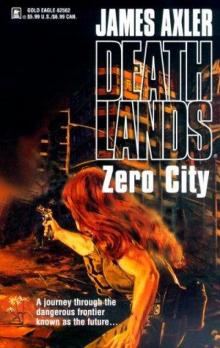 Zero City
Zero City Freedom Omnibus
Freedom Omnibus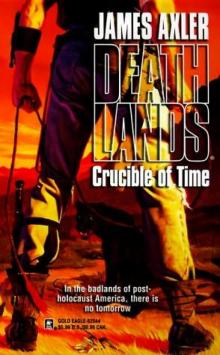 ACrucible of Time
ACrucible of Time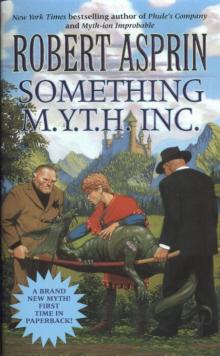 Something MYTH Inc
Something MYTH Inc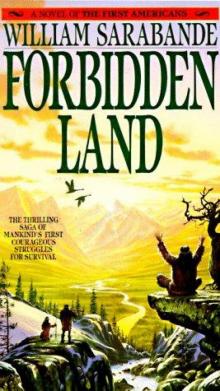 Forbidden Land
Forbidden Land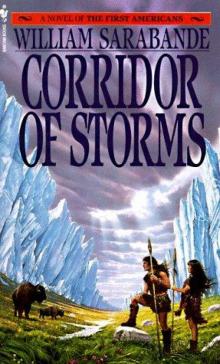 Corridor of Storms
Corridor of Storms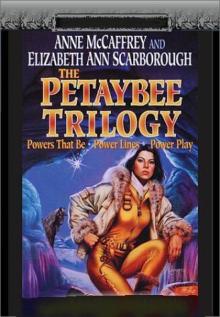 The Peytabee Omnibus
The Peytabee Omnibus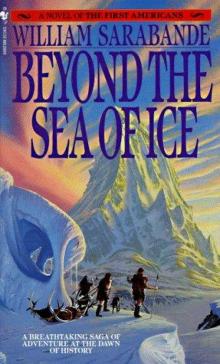 Beyond the Sea of Ice
Beyond the Sea of Ice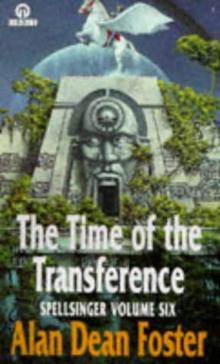 The Time Of The Transferance
The Time Of The Transferance EarthBlood
EarthBlood The Lexal Affair
The Lexal Affair The Web
The Web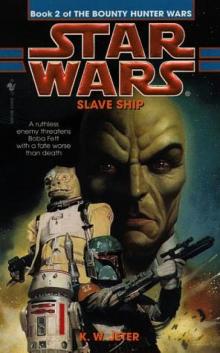 Slave Ship
Slave Ship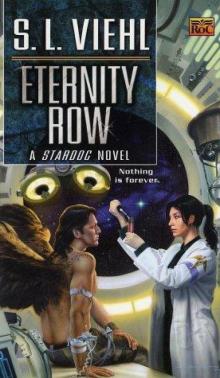 Eternity Row
Eternity Row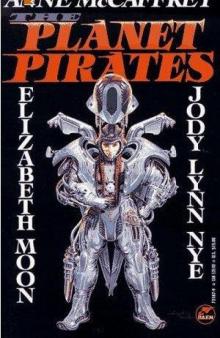 Planet Pirates Omnibus
Planet Pirates Omnibus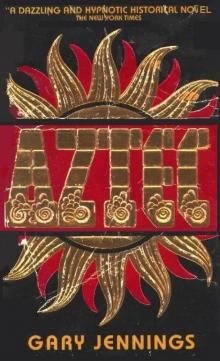 Aztec
Aztec The Awakening
The Awakening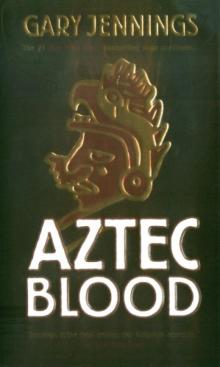 Aztec Blood
Aztec Blood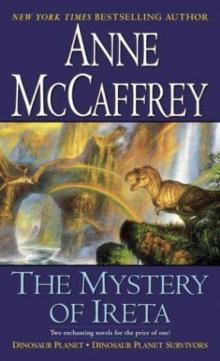 The Mystery of Ireta Omnibus
The Mystery of Ireta Omnibus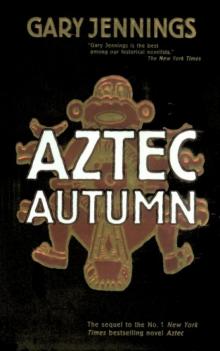 Aztec Autumn
Aztec Autumn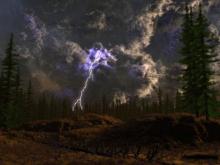 The Savage Horde
The Savage Horde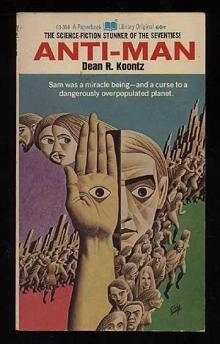 Anti - Man
Anti - Man Deep Trek
Deep Trek Starfall
Starfall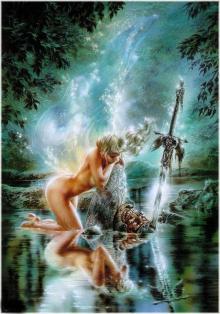 The Paths Of The Perambulator
The Paths Of The Perambulator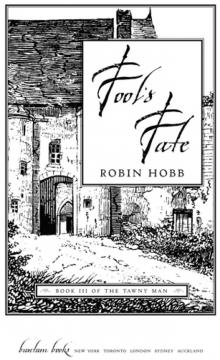 Fool's Fate
Fool's Fate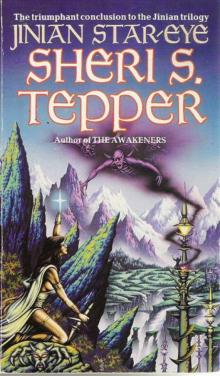 Jinian Stareye
Jinian Stareye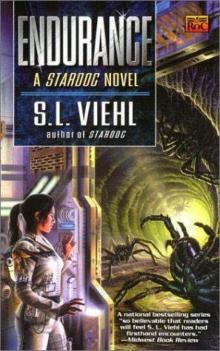 Endurance
Endurance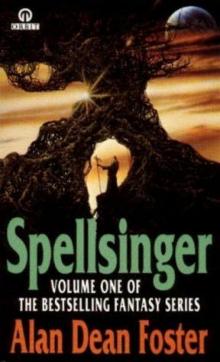 Spellsinger
Spellsinger Hybrids
Hybrids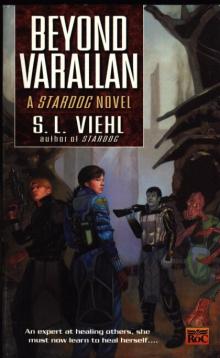 Beyond Varallan
Beyond Varallan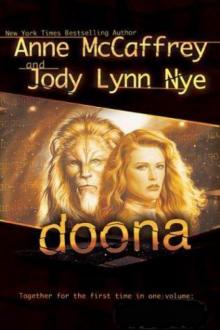 Doona Trilogy Omnibus
Doona Trilogy Omnibus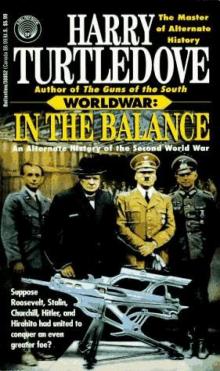 In th Balance
In th Balance Planerbound
Planerbound The Nightmare begins
The Nightmare begins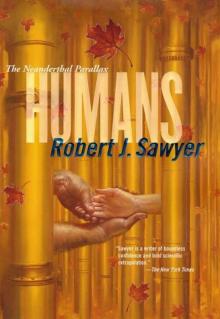 Humans
Humans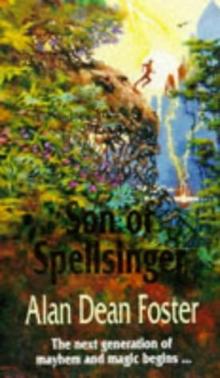 Son Of Spellsinger
Son Of Spellsinger